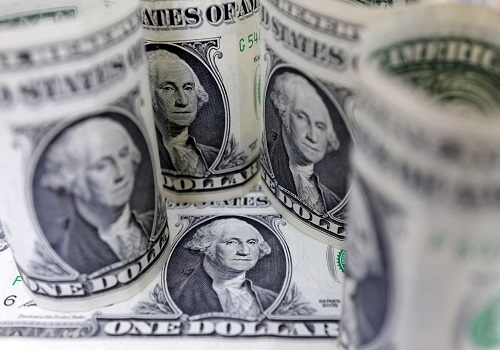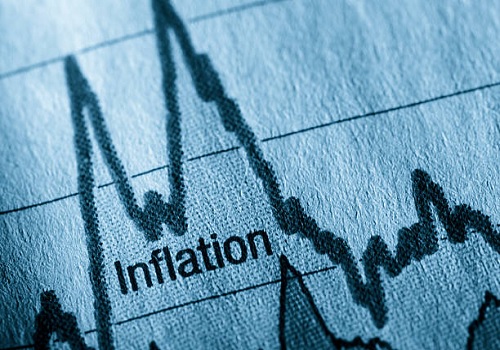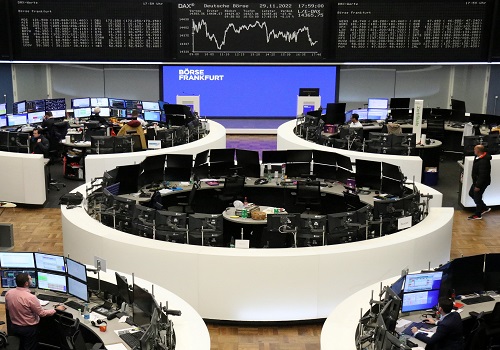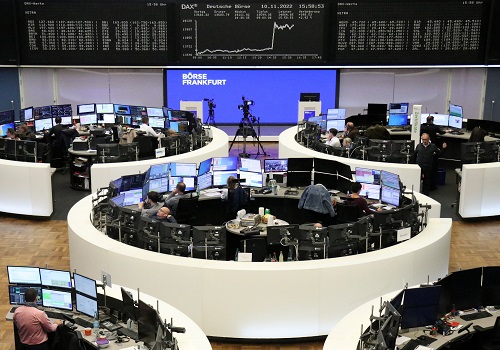U.S. dollar surges as traders say markets overreacted to U.S. inflation data

Follow us Now on Telegram ! Get daily 10 - 12 important updates on Business, Finance and Investment. Join our Telegram Channel
The U.S. dollar rose against the euro and sterling on Monday, after sliding to multi-month lows, as expectations of a less aggressive Federal Reserve interest rate hike faded with traders saying market overreacted to a modest miss on U.S. inflation.
Last week, the dollar index fell 4%, marking its worst week in more than two and half years, after data showing U.S. consumer prices rose less than expected in October, rising bets the Fed would scale back its hefty interest rate hikes.
But Governor Christopher Waller flagged on Sunday that the inflation print was "just one data point" and that other similar readings would be needed to show convincingly that inflation was slowing.
Waller did add, however, that the Fed could now start thinking about hiking at a slower pace.
The euro fell 0.6% against the dollar to $1.0284 at 1130 GMT, after rising to a three-month high during Asian trading hours.
"I think reality has finally hit markets. Following last week’s aggressive repricing, especially within European FX, and the latest pushback from senior Fed officials, traders are seemingly prioritising re-engaging in some U.S. dollar length," said Simon Harvey, Head of FX Analysis at Monex.
"We think euro/dollar downside has further to run despite ECB (European Central Bank) officials trying to underpin euro zone rates," he added.
GRAPHIC - EUROUSD
https://fingfx.thomsonreuters.com/gfx/mkt/lbpggnrenpq/EUROUSD.png
ECB board member Fabio Panetta said on Monday that the central bank must keep raising rates but needs to avoid overtightening as that could destroy productive capacity and deepen an economic downturn.
YUAN RALLY
On the data front, figures showed on Monday that euro zone industrial production rose much more than expected in September, and output for August was revised upwards too, although economists said that may be partly due to manufacturers frontloading production before energy-related disruptions this winter.
Sterling fell ahead of the British Chancellor's autumn statement on Thursday, where he is expected to set out tax rises and spending cuts. The pound was down 0.6% at $1.1762, having risen 4% in the previous two sessions, touching on Friday its highest since late August.
The dollar index, which gauges the greenback against a basket of six other major currencies including the euro, yen, and sterling, rose 0.4% to 107.14.
Cryptocurrencies remained under pressure from ongoing turmoil after the fall of crypto exchange FTX. FTX's token was worth just $1.3, down 94% in November, while Crypto.com's Cronos token has halved in the past week to $0.06, according to price site Coingecko.
Bitcoin slid back below $16,000 early on Monday before recovering to trade at $16,779, up 2.9% on the day.
China's onshore yuan rose to a near two-month high against the dollar, after the central bank lifted its official guidance fixing by the most since 2005 when Beijing abandoned the currency's decade-old peg against the greenback.
The yuan's rally coincided with a broad lift in Chinese market sentiment on official moves to help the embattled property sector and the government's decision to ease some of the country's strict COVID-19 restrictions.
Elsewhere, the Japanese yen weakened 1.1% versus the greenback to 140.37 per dollar.
The risk-sensitive Australian and New Zealand dollars slipped, giving up some gains made after China moderated its zero COVID strategy.
(This story has been corrected to fix first paragraph to say U.S. dollar had slid to multi-month lows, not highs)
























